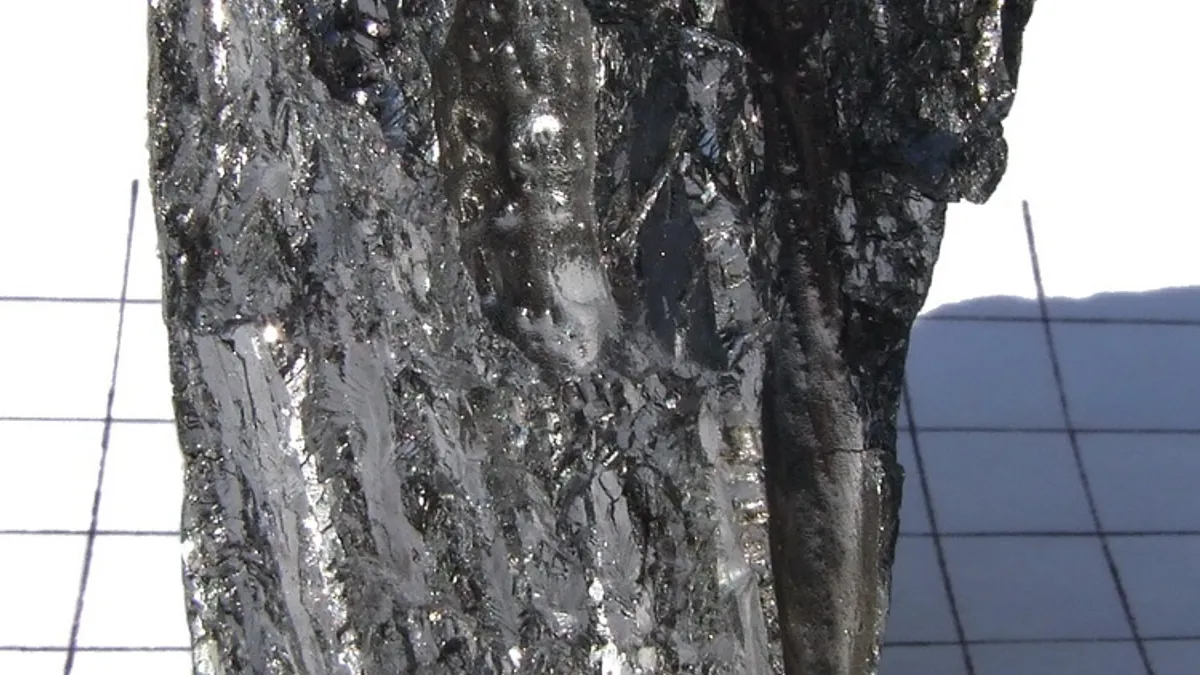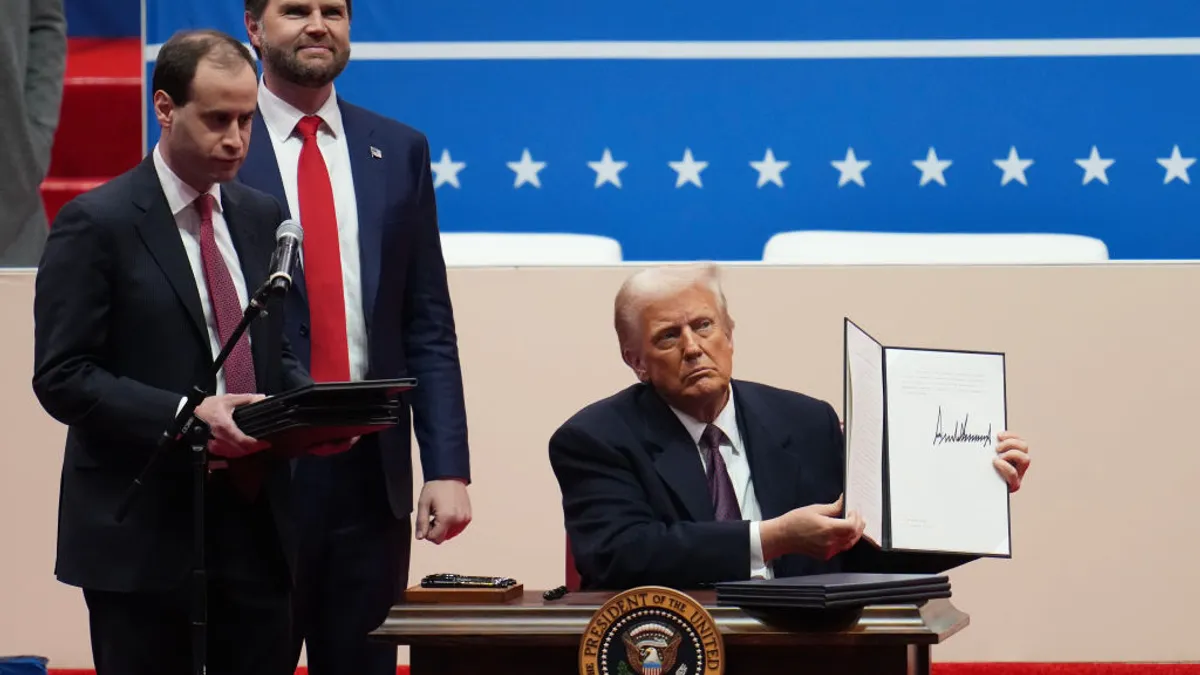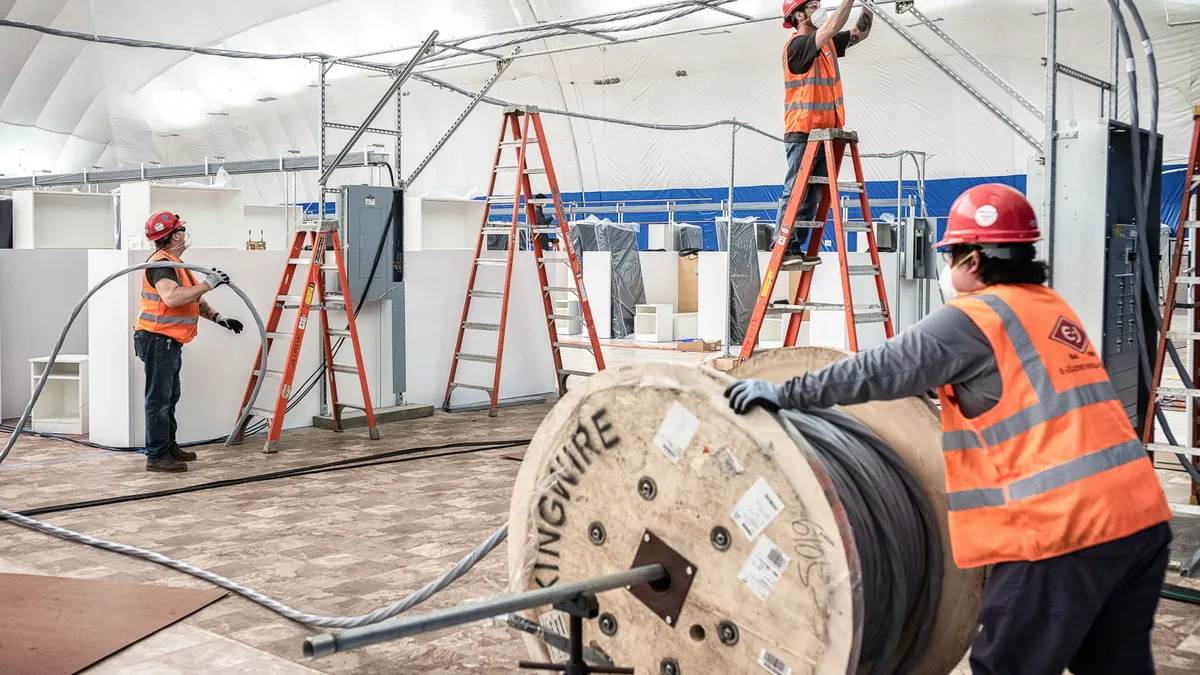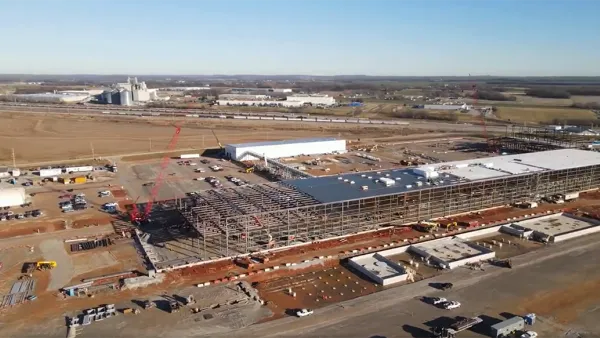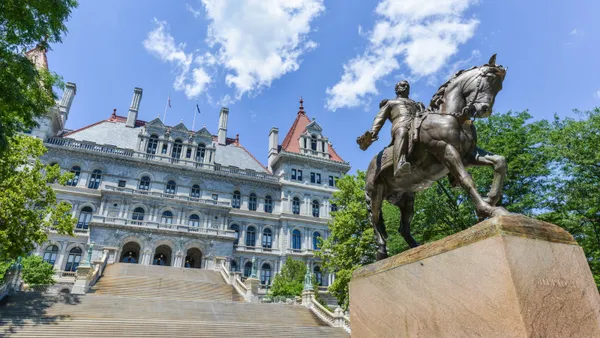Dive Brief:
- The Occupational Safety and Health Administration announced Wednesday that it will delay implementation of its new beryllium rule by 60 days to May 20.
- The agency, in compliance with a White House memorandum signed Jan. 20, will review the new regulation, which was already postponed once since it was published Jan. 9.
- OSHA said a delay in the rule's effective date does not change employer compliance deadlines, but the agency is accepting comments on the regulation through March 13.
Dive Insight:
Beryllium dust can be inhaled whenever the metal is sandblasted or subjected to grinding and has been found to cause lung cancer. When OSHA announced the new rule in January, it said the new exposure limits would prevent 46 new cases of beryllium-related disease and 94 associated deaths each year. Employers have one year to comply with exposure limits, two years to provide changing rooms and showers and three years to implement the required engineering controls.
OSHA's new parameters reduces allowable exposure to beryllium dust to 0.2 micrograms per cubic meter during any eight-hour period, down from 2.0 micrograms per cubic meter. In addition to exposure considerations, the regulation requires that at-risk employees wear protective equipment and that employers provide changing rooms and showers, as well as implement other defensive measures. The construction industry, along with the shipyard sector, wasn't included in the original beryllium rule revision but was added to the final rule.
President Donald Trump, who campaigned in part on the promise of regulatory reform, signed the "freeze and review" memorandum just hours after his inauguration. In the span of his first few weeks in office, he also executed directives meant to jump-start two stalled pipeline projects, ordered federal agencies to expedite construction of a border wall between the U.S. and Mexico and issued an executive order that could fast-track environmental reviews for "high-priority" infrastructure projects. Trump staffers have since circulated a list of 50 such infrastructure projects throughout the country, and U.S. Customs and Border Protection has started the bid process for the border wall.
Trump's war on regulatory excess and Republicans' control in Congress has led lawmakers to introduce resolutions to revoke other federal regulations, such as the Department of Labor's "blacklisting rule," as well as a provision of OSHA's final electronic recordkeeping regulation known as the Volks rule. The blacklisting rule would require construction companies looking to contract with the federal government to disclose their history of Department of Labor violations. Revocation of the Volks rule could reinstate a former OSHA six-month statute of limitations on recordkeeping violations.


